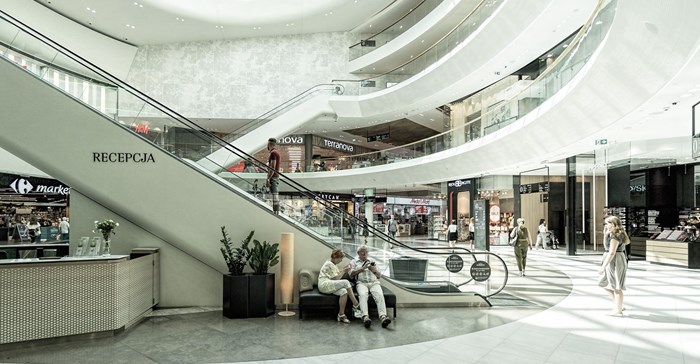Despite a boom in e-commerce during the Covid-19 pandemic, shopping malls in SA remain one of the consumers' main shopping choices. This is according to the CEO of Capital Connect Steven Heilbron.
Heilbron highlights three key trends that are in play as South African retail emerges from the pandemic:
Experience is king
Despite the surge in e-commerce during and after the pandemic, the shopping mall culture remains deeply ingrained in the fabric of South African consumers’ lives. Mall owners report that consumers are now heading back to the malls—perhaps not surprising given that malls offer a safe, sheltered environment in a country with high crime levels.
Persistent load shedding, too, gives consumers a reason to head to malls with generators, hot food, and working Wi-Fi. There is a surge in mall construction underway, with more than 300,000 square metres of new leasable retail space set to be completed across the country this year. But, there are some important trends to note.
Firstly, high fuel prices mean that consumers are driving less or going to destinations that are closer to their homes. That means it’s key to take advantage of each contact with the customer and grow basket size. Secondly, when customers head to malls, they want to make a day of it. Retailers should offer value-adds like dining, shopper-tainment and experiences to entice customers to spend more time and money with them.
New generations, new tastes and desires
New generations are influencing what their parents spend their money on and coming of age as shoppers in their own rights. Many members of Generations Alpha (born after 2010) and Z (aged 11 to 25) are concerned about environmental and social justice, putting inclusivity, diversity and sustainability at the top of their list of demands. They were also born into a world where smartphones and the Internet are taken for granted.
Retailers should pay attention to what makes these shoppers of the future tick. Many of them reject consumerism in favour of experiences; at the same time, their tastes and preferences are creating exciting new markets.
There are new and exciting product categories opening in the next generation—including cannabis oil, vegan meat substitutes, beauty products for diverse skin tones and gender-neutral clothing.
Everything, everywhere, all at once
After the pandemic, retailers face the expectation of flexible purchasing, fulfilment and customer service experiences. Customers are looking for what Flux calls of ‘phygital’ experiences that bridge the gap between online and offline to deliver an integrated, unique experience. A simple example is entering an in-store competition by scanning a QR code from your smartphone.
Physical and e-commerce retailers alike can also incorporate live streaming to engage customers wherever they are. Short video formats and platforms such as Instastories and TikTok’s are also powerful tools. The goal should be to be present wherever consumers browse, transact, acquire and consume—from a range of delivery choices to buy online-pickup instore, curb-side pickup and in-store shopping.
Take advantage of opportunity capital to grow and thrive
In a rapidly changing world, where shopping channels, technology and consumer preferences are constantly changing, the most agile retailers can carve out real differentiation and grow market share, says Heilbron.
Whether they want to create store displays to highlight new offerings, invest in generators or solar to keep running through load shedding, or create dining and entertainment experiences, retailers need access to capital to grow and outwit their competition.














































